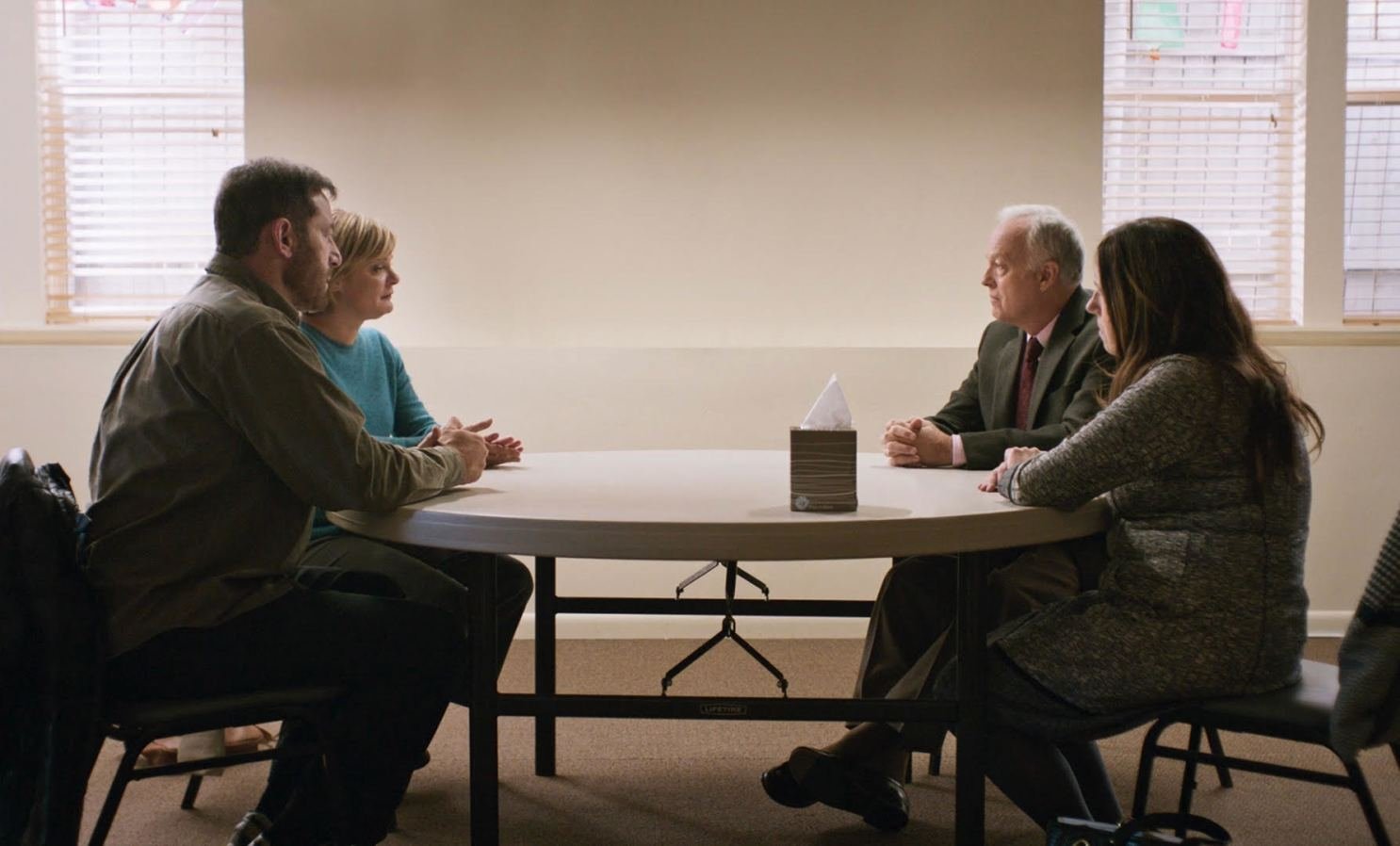Mass: Tiny Wars and Insurmountable Grace
“Let all bitterness and wrath and anger and clamor and slander be put away from you, along with all malice. Be kind to one another, tenderhearted, forgiving one another, as God in Christ forgave you.”
Ephesians 4:31-32
Mass understands a pivotal aspect of forgiveness, that it is not only about showing grace to another, but similarly showing grace to ourselves for the hatred we’ve carried.
The film finds us in the middle of an unimaginable situation, two couples grieving over the same event under completely different circumstances. The reveal of why these couples are meeting is a slow burn, but when it comes, this tiny room in a local episcopal church is transformed into an emotional battlefield with no one leaving unscathed.
Judy bounces across the church in a nervous tizzy, anxious for the meeting they have graciously agreed to host. She obsessively moves a table to make sure it’s in the perfect position, she gets bagels and coffee that we all know no one will eat, and she has no idea where the perfect spot for the Kleenex is. All the while, Jay and Gail sit in their car discussing whether to stay, or turn around and go home. The thought of leaving lingers as Jay looks across a large field contemplating whether this will all be worth it.
Before we know it, Jay and Gail sit down across from Linda and Richard in this small church room with a perfectly centered table and a bounty of coffee and bagels. Linda even brought flowers that seem even more oddly placed than the bagels. As the two couples begin to speak it seems clear that they’ve met before but the way things were left were less than ideal. There’s discussions of family pictures that one of the couples had brought and a small toy that the other brought with them. As tensions begin to rise, the truth is let out like the first bolt of lightning in a growing storm: their children were both part of a school shooting, but one son was a victim and the other the killer.
From here everything unravels. We begin to see trauma and wounds fully exposed. One couple simply wants answers, the other feels like they have none to give. There are questions of human value, parental guilt, and ultimately the search for where mercy and forgiveness meet. All these questions come together to leave us with one the most memorable and fitting endings I have ever seen. It’s nothing flashy, but transcendent in a way that perfectly fits the themes of the film.
First time director Fran Kranz creates a beautiful and intense film that could easily double as a stage play. A majority of the film is the four actors in a room talking, and while to some that may sound dull, what Kranz is able to accomplish here is really quite remarkable. As a director he has a very clear visual understanding of when to show and when to tell. This is helped by the fact that he gets some powerhouse performances, particularly from Jason Isaacs and Ann Dowd, who will both surely be up for Oscar nominations. While there certainly are some pacing issues here and there, they in no way downplay the strengths of the film.
It’s impossible not to see the weight that grace and forgiveness hold in this story. At the same time it is impossible to think about grace and forgiveness and not consider why we long so deeply for those two gifts. You know that feeling of sitting down Christmas morning and receiving a gift, and the only thing more exciting is getting to watch someone else open the gift you got them? We innately love to give as we are given. Christ showed us the ultimate grace and forgiveness on the cross. That eternal sacrifice would propel even the hardest of hearts to seek reconciliation with those who have wronged them. Mass is a powerful film. One that stares into the face of wrath and vengeance without blinking and claims that it’s so much better to forgive.
⭑⭑⭑⭑ / 5
Playing in select theaters.

